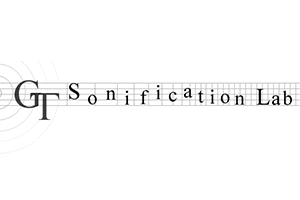Fantasy Sports allow users to compete against each other using statistics from real-world competitions. It's a fun and social online game which allows participants to assemble virtual teams of real-world athletes of a professional sport. These teams compete based on the performance of their players in the real world. The team gains or loses points based on the real athletes' weekly performance. Fantasy players manage their teams based on real sports data. This qualitative and quantitative data is provided in the form of tables making the drafting system inaccessible for visually impaired users. The Accessible Fantasy Sports Drafting System has been exploring sonification techniques to make the system accessible, playing experience enjoyable and minimize the gap between the audio and visual space.

The Georgia Tech Sonification Lab is an interdisciplinary research group based in the School of Psychology and theSchool of Interactive Computing at Georgia Tech. Under the direction of Prof. Bruce Walker, the Sonification Lab focuses on the development and evaluation of auditory and multimodal interfaces, and the cognitive, psychophysical and practical aspects of auditory displays, paying particular attention to sonification. Special consideration is paid to Human Factors in the display of information in "complex task environments," such as the human-computer interfaces in cockpits, nuclear powerplants, in-vehicle infotainment displays, and in the space program.
[Random Image of Auditory Interface] Since we specialize in multimodal and auditory interfaces, we often work with people who cannot look at, or cannot see, traditional visual displays. This means we work on a lot of assistive technologies, especially for people with vision impairments. We study ways to enhance wayfinding and mobility, math and science education, entertainment, art, music, and participation in informal learning environments like zoos and aquariums.
The Lab includes students and researchers from all backgrounds, including psychology, computing, HCI, music, engineering, and architecture. Our research projects are collaborative efforts, often including empirical (lab) studies, software and hardware development, field studies, usabilty investigations, and focus group studies.


